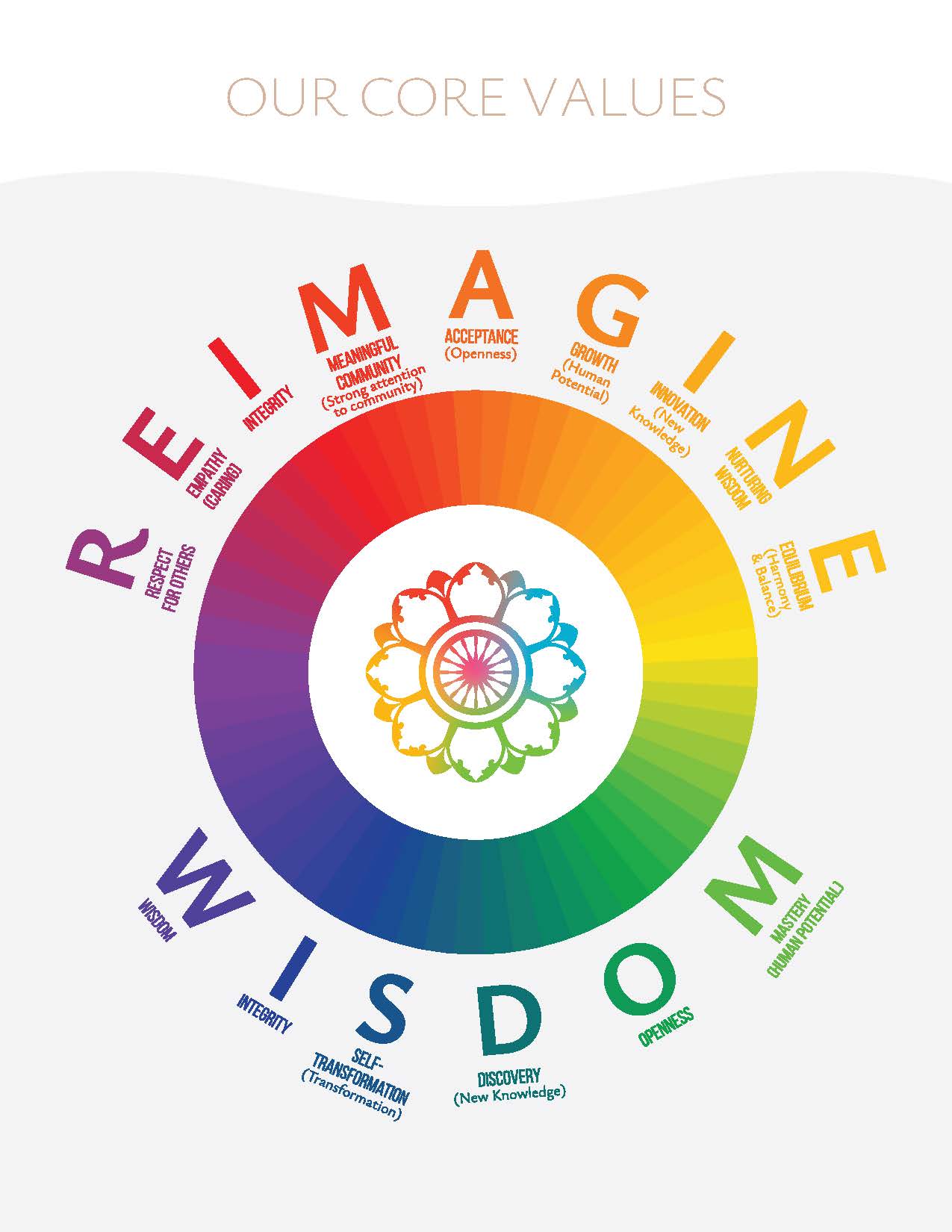Earlier this month, Naina Bajekal, a writer at Time magazine, detailed the growing interest in the jhanas—advanced Buddhist meditative states—among Silicon Valley tech circles, particularly through the work of tech startups such as Jhourney, a meditation startup that is “selling bliss on demand.” (The Atlantic) While these meditation practices offer potential benefits for deeper self-awareness and emotional well-being, the article points to concerns about the risks of commercialization and the dilution of spiritual practices into quick-fix solutions. Should diligent Buddhists celebrate the spread of core practices, or decry the dilution of the Buddha’s wisdom as it is stretched to meet market demands?
This growing interest in advanced Buddhist meditation practices, such as the jhanas, among Silicon Valley enthusiasts and beyond, reflects a broader trend of seeking deeper meaning and well-being in an increasingly uncertain world. This world has been aptly described as VUCA: filled with volatility, uncertainty, complexity, and ambiguity, by columnists here at BDG, following the introduction of the term by the US Army War College in the 1980s.
*In this world, religion—or philosophy or tradition if you prefer—can provide a lasting and stable refuge. In particular, the practice of jhana meditation may transcend particular traditions to offer solace to people the world over.
The jhanas, eight meditative states characterized by profound concentration and blissful absorption, have historically been the domain of devoted practitioners. However, recent developments, such as the emergence of startups like Jhourney, are making these ancient practices more accessible to the general public.
The popularization of meditation practices such as the jhanas has the potential to bring significant benefits to individuals and society. Meditation, when practiced with proper guidance and intent, can give rise to mental clarity, emotional balance, and a deep sense of inner peace, which will then naturally radiate out into the world. The mainstreaming of these practices could help people reconnect with their inner selves, reduce stress, and cultivate a more compassionate and mindful approach to life.
However, as the Buddhist teachings themselves caution, the commercialization and rapid dissemination of such practices carry inherent risks. The commodification of meditation, particularly when driven by profit motives, can lead to a superficial understanding of these deep spiritual practices. Companies such as Jhourney, while offering a gateway to meditative experiences, must tread carefully to avoid diluting the essence of the practices they promote. There is a real danger that people, without adequate training or understanding, might misuse these techniques, potentially leading to psychological distress rather than the promised bliss.
As Jay Michaelson, a jhana meditation teacher in the tradition of Leigh Brasington and Ayya Khema, wrote in June: “When you take a practice that is traditionally done under the close supervision of an experienced teacher, and turn it into a kind of ready-made product with none of those guardrails, you’re risking superficial results at best, potential mental health issues at worst.” (Substack)
A clinical psychologist and researcher at Brown University, Willoughby Britton, has conducted extensive research on the potential adverse effects of meditation. Her work shows that meditation, especially when undertaken without proper guidance, can sometimes lead to unintended negative consequences, such as increased anxiety, dissociation, or even traumatic flashbacks. Britton’s findings underscore the importance of having well-trained instructors who can support practitioners through the challenging aspects of meditation. Without such support, individuals may find themselves unprepared to handle the intense experiences that can arise during deep meditative states such as the jhanas. She and her colleague, Jared Lindal, have developed a “Meditation Safety Toolbox” for meditation and mindfulness teachers in the hopes of preventing unintended harm in the teaching of these practices. (Brown University)
A greater problem is that the emphasis on quick results and “bliss on demand” can overshadow the deeper, more transformative aspects of meditation. The true purpose of the jhanas in Buddhist practice is not merely to experience pleasure but to prepare the mind for deeper insight and spiritual awakening. Without the ethical and philosophical grounding provided by traditional Buddhist teachings, there is a risk that these practices could be used in ways that reinforce egoism and self-centeredness, rather than promoting the wisdom and compassion that are central to the Buddhist path.
This concern ties into the broader critique of what has been termed “McMindfulness” by scholars such as Ron Purser and Miles Neale. McMindfulness refers to the commercialization and simplification of mindfulness practices, stripping them of their ethical and spiritual dimensions to make them more marketable and palatable to a Western audience. Purser argues that this trend has led to a version of mindfulness that is disconnected from its Buddhist roots and is often used to promote personal productivity or corporate interests rather than genuine inner transformation. Similarly, Miles Neale has criticized the reduction of mindfulness to a self-help tool, warning that without its ethical foundations, mindfulness can become a means of reinforcing individualism and consumerism, rather than giving rise to the collective well-being and spiritual growth that are central to Buddhist teachings.
Yet, despite these concerns, there is hope that the increasing interest in meditation can lead to positive outcomes for many. If approached with mindfulness and respect for the traditions from which these practices originate, the widespread adoption of meditation could lead to a more reflective and compassionate society. As more people experience the benefits of meditation, there is potential for a ripple effect, whereby individuals begin to seek not only personal well-being but also contribute to the greater good.
The mainstreaming of Buddhist meditation practices presents both opportunities and challenges. While the commercialization of these practices should be approached with caution, the potential for meditation to enhance well-being and promote positive change in the world is important. By developing a deeper understanding of meditation’s true purpose and ensuring that practices such as the jhanas are taught with integrity and care, there is hope that these ancient teachings can benefit all beings in profound and meaningful ways. Perhaps the best thing we can do is to reflect on our own relationship with ethics and wisdom and encourage others to do the same. If this can be done consistently, the journey into the jhanas, like the already popularized mindfulness, will also be a journey into real compassion and wisdom.
This growing interest in advanced Buddhist meditation practices, such as the jhanas, among Silicon Valley enthusiasts and beyond, reflects a broader trend of seeking deeper meaning and well-being in an increasingly uncertain world. This world has been aptly described as VUCA: filled with volatility, uncertainty, complexity, and ambiguity, by columnists here at BDG, following the introduction of the term by the US Army War College in the 1980s.
*In this world, religion—or philosophy or tradition if you prefer—can provide a lasting and stable refuge. In particular, the practice of jhana meditation may transcend particular traditions to offer solace to people the world over.
The jhanas, eight meditative states characterized by profound concentration and blissful absorption, have historically been the domain of devoted practitioners. However, recent developments, such as the emergence of startups like Jhourney, are making these ancient practices more accessible to the general public.
The popularization of meditation practices such as the jhanas has the potential to bring significant benefits to individuals and society. Meditation, when practiced with proper guidance and intent, can give rise to mental clarity, emotional balance, and a deep sense of inner peace, which will then naturally radiate out into the world. The mainstreaming of these practices could help people reconnect with their inner selves, reduce stress, and cultivate a more compassionate and mindful approach to life.
However, as the Buddhist teachings themselves caution, the commercialization and rapid dissemination of such practices carry inherent risks. The commodification of meditation, particularly when driven by profit motives, can lead to a superficial understanding of these deep spiritual practices. Companies such as Jhourney, while offering a gateway to meditative experiences, must tread carefully to avoid diluting the essence of the practices they promote. There is a real danger that people, without adequate training or understanding, might misuse these techniques, potentially leading to psychological distress rather than the promised bliss.
As Jay Michaelson, a jhana meditation teacher in the tradition of Leigh Brasington and Ayya Khema, wrote in June: “When you take a practice that is traditionally done under the close supervision of an experienced teacher, and turn it into a kind of ready-made product with none of those guardrails, you’re risking superficial results at best, potential mental health issues at worst.” (Substack)
A clinical psychologist and researcher at Brown University, Willoughby Britton, has conducted extensive research on the potential adverse effects of meditation. Her work shows that meditation, especially when undertaken without proper guidance, can sometimes lead to unintended negative consequences, such as increased anxiety, dissociation, or even traumatic flashbacks. Britton’s findings underscore the importance of having well-trained instructors who can support practitioners through the challenging aspects of meditation. Without such support, individuals may find themselves unprepared to handle the intense experiences that can arise during deep meditative states such as the jhanas. She and her colleague, Jared Lindal, have developed a “Meditation Safety Toolbox” for meditation and mindfulness teachers in the hopes of preventing unintended harm in the teaching of these practices. (Brown University)
A greater problem is that the emphasis on quick results and “bliss on demand” can overshadow the deeper, more transformative aspects of meditation. The true purpose of the jhanas in Buddhist practice is not merely to experience pleasure but to prepare the mind for deeper insight and spiritual awakening. Without the ethical and philosophical grounding provided by traditional Buddhist teachings, there is a risk that these practices could be used in ways that reinforce egoism and self-centeredness, rather than promoting the wisdom and compassion that are central to the Buddhist path.
This concern ties into the broader critique of what has been termed “McMindfulness” by scholars such as Ron Purser and Miles Neale. McMindfulness refers to the commercialization and simplification of mindfulness practices, stripping them of their ethical and spiritual dimensions to make them more marketable and palatable to a Western audience. Purser argues that this trend has led to a version of mindfulness that is disconnected from its Buddhist roots and is often used to promote personal productivity or corporate interests rather than genuine inner transformation. Similarly, Miles Neale has criticized the reduction of mindfulness to a self-help tool, warning that without its ethical foundations, mindfulness can become a means of reinforcing individualism and consumerism, rather than giving rise to the collective well-being and spiritual growth that are central to Buddhist teachings.
Yet, despite these concerns, there is hope that the increasing interest in meditation can lead to positive outcomes for many. If approached with mindfulness and respect for the traditions from which these practices originate, the widespread adoption of meditation could lead to a more reflective and compassionate society. As more people experience the benefits of meditation, there is potential for a ripple effect, whereby individuals begin to seek not only personal well-being but also contribute to the greater good.
The mainstreaming of Buddhist meditation practices presents both opportunities and challenges. While the commercialization of these practices should be approached with caution, the potential for meditation to enhance well-being and promote positive change in the world is important. By developing a deeper understanding of meditation’s true purpose and ensuring that practices such as the jhanas are taught with integrity and care, there is hope that these ancient teachings can benefit all beings in profound and meaningful ways. Perhaps the best thing we can do is to reflect on our own relationship with ethics and wisdom and encourage others to do the same. If this can be done consistently, the journey into the jhanas, like the already popularized mindfulness, will also be a journey into real compassion and wisdom.





Empty space, drag to resize

Copyright © 2024 Dharma College, All rights reserved.
Dharma College is an experiential academy for investigating the inner depths of mind and opening to an innate understanding of the treasures and freedom of Being.
This email was sent to <<Email Address>
Want to change how you receive these emails?
You can update your preferences or unsubscribe from this list.

Contact
2222 Harold Way
Berkeley, CA 94704
(510) 704-1105
(510) 704-1105
Public
Copyright © 2025

